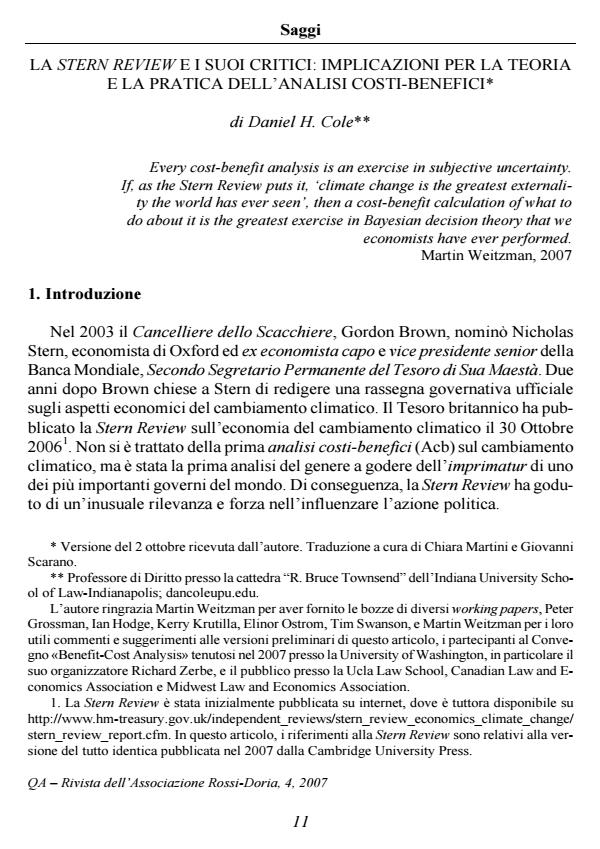La "Stern Review" e i suoi critici: implicazioni per la teoria e la pratica dell'analisi costi-benefici
Journal title QA Rivista dell’Associazione Rossi-Doria
Author/s Daniel H. Cole
Publishing Year 2008 Issue 2007/4 Language Italian
Pages 37 P. 11-47 File size 334 KB
DOI
DOI is like a bar code for intellectual property: to have more infomation
click here
Below, you can see the article first page
If you want to buy this article in PDF format, you can do it, following the instructions to buy download credits

FrancoAngeli is member of Publishers International Linking Association, Inc (PILA), a not-for-profit association which run the CrossRef service enabling links to and from online scholarly content.
The Stern Review and its critics: implications for the theory and practice of cost-benefit analysis - The Stern Review: The Economics of Climate Change reached conclusions and policy recommendations dramatically different from most of the earlier economic analyses of climate change. It found that the costs of climate change, as well as the potential net benefits of greenhouse gas reductions, were much higher than previously estimated, and consequently recommended more rapid and extensive cuts in emissions than had many other economist analysts. A number of prominent economists have criticized the Stern Review on various grounds, including its damage estimates and the selection of parameter values, which affect the interest rate at which future costs and benefits are discounted to present value. This paper summarizes the Stern Review and its critiques, and assesses them from a process-oriented perspective to determine what they can teach us, positively and negatively, about how benefit-cost analyses should (or should not) be carried out.
Daniel H. Cole, La "Stern Review" e i suoi critici: implicazioni per la teoria e la pratica dell'analisi costi-benefici in "QA Rivista dell’Associazione Rossi-Doria" 4/2007, pp 11-47, DOI: